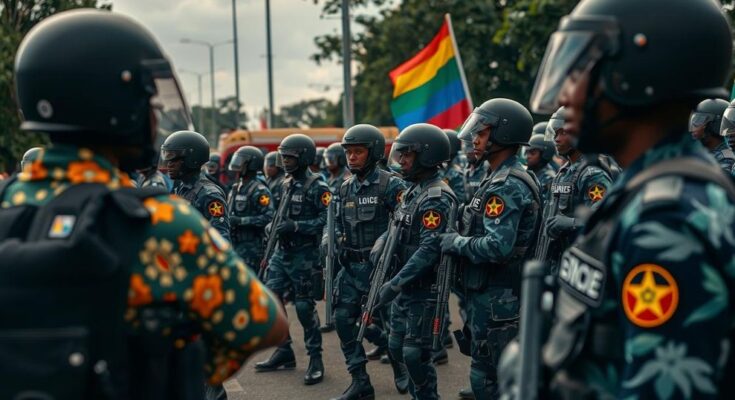The recent protests in Mozambique, sparked by allegations of electoral fraud in the presidential elections, resulted in several deaths, including that of a 16-year-old boy, Antonio Juaqim. Eyewitness accounts claim police fired on unarmed protesters during pot-banging demonstrations, highlighting significant dissatisfaction with the ruling Frelimo party. The situation represents a critical moment for political change in Mozambique as citizens increasingly demand accountability and justice.
In the aftermath of Mozambique’s recent presidential election, the nation has witnessed a tragic escalation of violence, culminating in the deaths of several protesting youths, including 16-year-old Antonio Juaqim. He was killed during a pot-banging demonstration organized to contest the electoral results, which declared the ruling Frelimo party the victor with 71% of the vote. Eyewitness accounts and CCTV footage have implicated police in the shooting of unarmed protesters, eliciting widespread outrage and grief among the populace. Antonio’s death, along with the fatal shootings of other young protesters, has highlighted the growing dissatisfaction with the Frelimo leadership and the desperate calls for political change led by opposition figures such as Venâncio Mondlane. Protests have since evolved into nightly vigils, with citizens banging pots in a symbolic rejection of the government and its longstanding hold on power. Amidst accusations of excessive force by law enforcement and a denial from authorities regarding claims of electoral misconduct, Mozambique grapples with one of its most unsettling crises since achieving multi-party democracy.
The political landscape in Mozambique has been dominated by Frelimo, the ruling party since independence from colonial rule 49 years ago. The recent presidential elections, held on October 24, resulted in a landslide victory for the incumbent party, a result that was soon contested by the main opposition party, Renamo. Allegations of electoral fraud and police brutality against dissenters have marred the political climate. The unrest has particularly affected the youth demographic, which increasingly demands economic opportunities and political representation. The recent protests highlight a significant shift in public sentiment against the ruling regime, suggesting a growing call for accountability and change within the political system.
The tragic events surrounding the recent protests in Mozambique reflect a critical juncture in the country’s political journey. The loss of young lives during demonstrations underscores the urgency of addressing voter disillusionment and the demand for accountability from authorities. As the nation mourns, the quest for justice persists, while the social fabric of Mozambique is tested under the pressures of political unrest and demands for a more equitable governance structure.
Original Source: www.bbc.com




